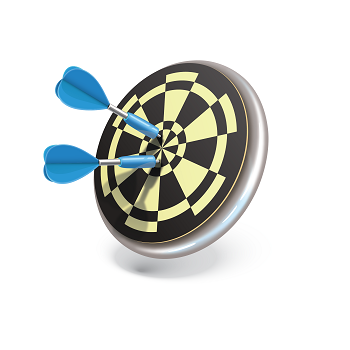Let’s take a familiar situation: you’ve learned a Japanese word and moved on to something new. Then you encounter that word again, and your understanding makes no sense. So you look it up again and this time you find ten definitions. Ugh… Why do Japanese words have so many meanings?
Can’t we write a law that states: One word = One meaning ???
Well, not really. It’s not a Japanese problem. It’s a language problem.
Or perhaps I should just call it a language fact. Problems can be solved, but facts just have to be accepted.
Let’s Take A Look At It With An English Word
More specifically, let’s start with the word Right.
It can mean a direction like: a right turn, your right hand.
It can refer to truth and facts as in: the right answer, the right (correct) way to do something.
It can also get into the realm of morals: He did the right thing, he wouldn’t feel right about steeling.
Plus it can talk about a person’s privilege to do or have something: It’s my right to wear all purple on Thursdays.
Can you believe that this one word gets even more definitions when it is spoken, instead of written? I’m talking about when you write something!
“Hey man, do you even have the right to write the right answer in the right column on the chalkboard?”
What the hell did I just read!?
Let’s try that same sentence again, but swap out some of the words with alternate (but appropriate) ones.
“Hey man, do you even have the privilege to inscribe the correct answer in the right column on the chalkboard?”
Sounds a little weird, but it’s a lot less confusing since it only uses the word “right” one time.
I don’t really know why it’s like this. I only know that it is. Since I went over an English example, let’s switch it over to Japanese and look at one of those too.
A Japanese Word With Multiple Meanings or Definitions
Here we go:
丸 【まる】 Noun:
- circle,
- entirety, full, whole, complete
- money, dough, moola (slang)
- enclosure inside a castle’s walls
- soft-shelled turtle (Kansai dialect)
Is that confusing or what?
Usually a person who is learning kanji will come across it alongside all of these definitions and try to memorize them all.
That just leads to headache and confusion.
Much better to take the same approach as James Heisig and only learn one definition at the time of encoding.
Here’s the thing, just like in English, the context of the Japanese sentence will point to which definition is the correct one to use at the time.
Yes, at some point you do have to learn several different meanings for the same word, but you already do that anyway with your native language, so it shouldn’t be a big deal for you to do it again.
Not all definitions are created equal. Some of them get used a heck of a lot more often than the others.
For example, you are going to encounter 丸 for “circle” a lot more often than you are for “soft-shelled turtle.”
How To Approach Learning New Words When They All Cray-Cray

From these examples we can create two rules (or guidelines, really) for you to abide by so that you can learn Japanese without losing your mind. They are:
- Focus on learning the (one) most commonly used definition for new words.
- Remain flexible in your understanding for when those alternative meanings pop up.
When you learn the common definition, you roll with it since it should apply about 90% of the time. But that other 10% will occur occasionally and your current knowledge of the word won’t make any sense.
Instead of thinking “Man, what a dumb language” you should look up the word again and try to find a lesser used interpretation for it to see if any of them make more sense.
Bam! Now you know TWO definitions for the same word. Rinse and repeat until you’ve learned them all.
But only learn them when you need them.
Here’s the thing: Even English is hard to understand some times. And I’m talking about for native English speakers!
So it really should come as no surprise that Japanese, which has that same language characteristic of “one word meaning several things”, will also be hard to understand at times.
Better to accept this fact now and get on with your life studies.
Here’s the point I’m trying to make today: Don’t be discouraged when you encounter a Japanese word that you’ve already learned and it’s used in a way that you don’t understand.
You might mistakenly chalk it up to Japanese being a difficult language. But really, all languages are difficult when they pull this crap.
And they all do it.
Well, maybe not all of them. But I can promise you that English and Japanese both do it. Bastards.
A Game Of Darts Before You Go? (It’s a Metaphor)
One more reason why there are several English definitions given for a single Japanese word is because not all Japanese words have an English equivalent.
Most of the time, they do. You know the English word for “dog” and then you learn the Japanese word 「犬」 and they are a match.
In this case, the English word is the dart, and the Japanese word is the bullseye.

But what about those times when there is a Japanese word that doesn’t have an English equivalent? Then you can’t really hit the Japanese-meaning bulls-eye with a single English dart.
So instead you (intentionally) use two, three, maybe even more English darts in a systematic method so that you basically get “an impression” or “the general meaning” of what the Japanese word means and where that bulls-eye is located.

That’s a visual representation of why a single word can translate into several different ones, and yet they can still all be correct.
But if that’s not really helpful for you, then just remember the two rules I gave you for learning new Japanese words above and carry on.
—
Do you have a time when a Japanese word didn’t make any sense the way it was used? What are some of your favorite Japanese words that have lots of different meanings?
Share your thoughts on it!
Further Resources for Learning Japanese:
#3 Get My eBook (Secrets to Learning Japanese) for Free

またね!

Hi Nick,
I am so glad I came across your post. I am from India and have my dad’s sister who married a Japanese man who lives there. Her son – who is my cousin lives in London where I’m based too, and I was searching for a blog to read up on so I could speak the basics of the language!
Honestly, I had no idea that they had one word which could have several meanings. It is so whacked out! Such an eye-opening article. I must add I found your post learning Hiragana brilliant, especially you mentioning the historical context did help! How did you get into learning the language?
I am looking forward to more posts coming out in the future!
Hey thanks Stephan! That’s pretty awesome that you’ve got some relatives that are Japanese!
Yeah, it can be pretty overwhelming at first when you try to learn Japanese and are bombarded with all the possible interpretations for each word.
As for me, I had always had a desire to learn one of the Asian languages ever since I was a kid, but I finally ended up picking Japanese because I was really big into JRPGs at the time, which of course stands for Japanese Role-Playing Games!
It just made sense to me to go with what I enjoyed most at the time.